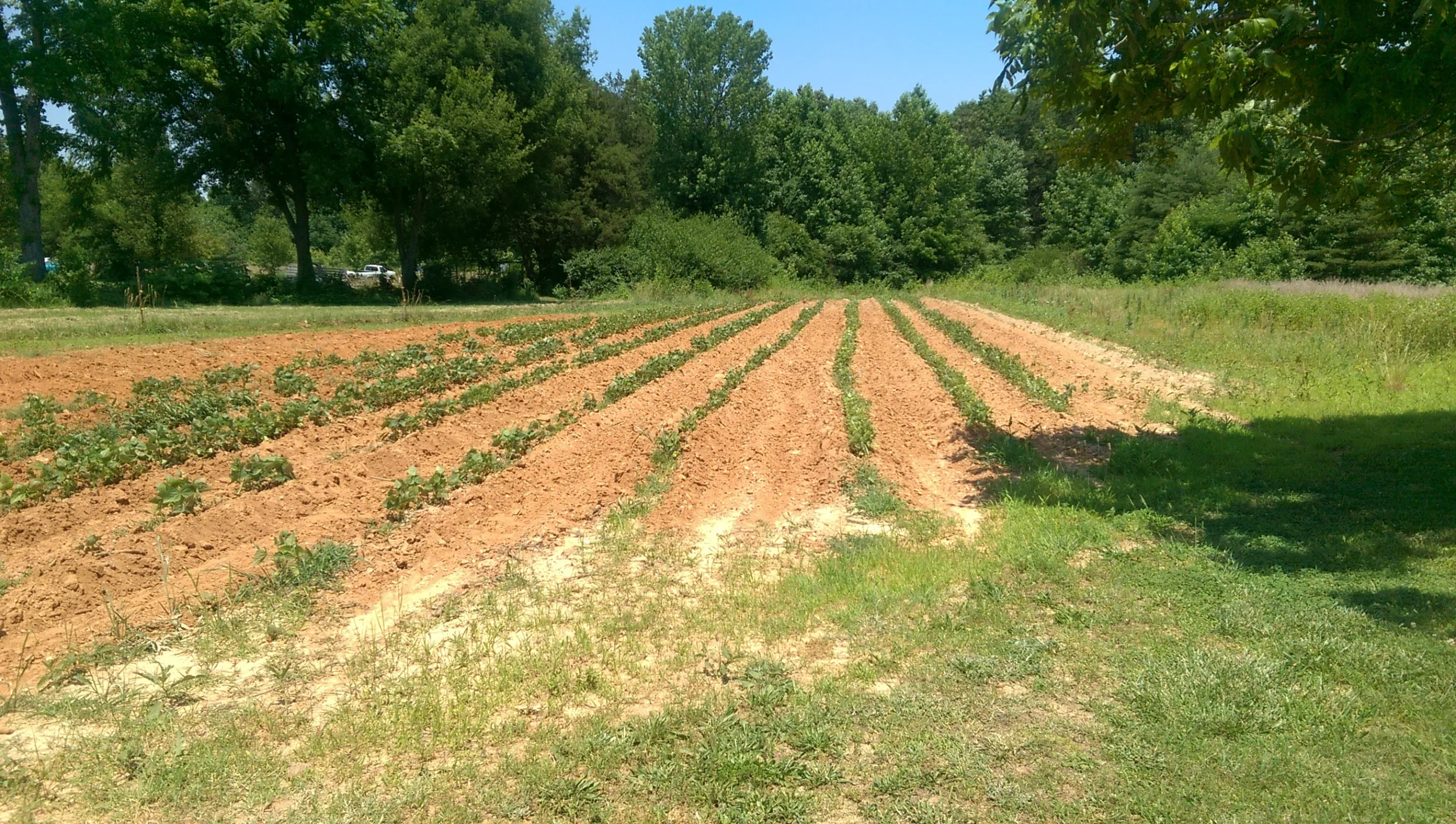By Gilda Pedraza
“What a terrible irony it is that the very people who harvest the food we eat do not have enough food for their own.”
The quote above from Cesar Chavez was shared in one of his speeches in1972 in California. Unfortunately, over 50 years later, its premise of inequity remains true and relevant for hundreds of thousands of workers in fields and poultry plants in Georgia and nationwide.
When this report is issued, Georgia remains one of the top five states in the country using imported labor to sustain its largest economic sector: Agribusiness.
There are currently over 36,307 H-2A workers in the Peach State – primarily from Mexico and Central America – toiling the soil, harvesting produce, working in tobacco, timber, or any of the many agricultural products produced in our state. Their labor contributes over $70 billion each year to the state’s economy.
In 2020, there were 352,430 jobs in the agricultural sector in Georgia. Nationally, we know that 78 percent of agricultural workers self-identify as Hispanic. Moreover, we know that about 50 percent of hired agricultural workers do not have authorization to work in the U.S. and that they face numerous chemical, physical and biological threats to their health.[i] These same workers, who put their lives at risk to put food on our tables, are unable to access or qualify for any medical insurance, employer or state supported or sponsored protections, or consistent services due in part to the American idea of “Agricultural Exceptionalism.”
“Agricultural Exceptionalism” refers to policy carveouts that have created a workforce with fewer federal rights and protections than are extended to most other sectors. How did we get here? During the New Deal Era, President Theodore Roosevelt struck a bargain with Southern Democrats: they would support workers’ rights legislation so long as their farmworkers (predominantly African American workers) were exempt. Thus, the U.S. Congress excluded farmworkers from the National Labor Relations Act of 1935 (NLRA), the main federal law that protects workers who join and organize labor unions, and from the federal minimum wage and overtime protections in the Fair Labor Standards Act (FLSA) of 1938. Farmworkers continued to be excluded from the FLSA until 1966.
Historically, maintaining an under-documented and invisible population, mostly immigrants and overwhelmingly Hispanic or Latino, has been important to sustain the fast-growing economic sectors that require manual and consistent work (construction, landscaping, maintenance, farm work, manufacturing, the care sector, poultry/ meat production and packing, etc.). Employers pay low wages and abstain from any protections or benefits like workers’ compensation and medical insurance when dealing with individuals who are less likely to complain or have fewer options for their livelihood.
The agribusiness sector exemplifies how entrenched economic practices have shifted from relying on enslaved labor to exploiting immigrant workers through backbreaking, unethical and abusive employment practices, overwhelmingly affecting communities historically invisible and intentionally divested in. These practices are not only immoral, but they are also unsustainable for business and for the economic systems our lives depend on.
“Undocumented immigrants and their households pay $79.7 billion in federal taxes and $41 billion in state and local taxes annually. Despite being ineligible for social safety net programs, undocumented workers continue to pay into them, to the tune of $21 billion each year.”
Source: “Why Immigration Relief Matters,” Center for American Progress (2022).
An undocumented and/or temporary worker is an economic citizen, producing for the state and contributing with their talent, labor, and time to a particular economic activity. This worker pays property taxes when renting a home or apartment, sales taxes when shopping, and reports to the IRS with an employer identification number (EIN) or an individual taxpayer identification number (ITIN) in most cases. However, this same worker is unable to access any safety net programs, qualify for insurance or receive social security payments even if they have made contributions to these programs throughout their lives. Like building a house and never being allowed to step inside, it is a bitter irony when you are forced to watch from the outside as others benefit from the fruits of your labor.
For Latino workers in Georgia and across the South, the narrative of being “hardworking” has in some ways legitimized exploitation. Latino men have higher labor force participation rates than any other demographic at 83%, yet almost half of all Latinos live in poverty or very low-income conditions (21% are poor, 28% are low-income).[ii] The term “hardworking” becomes a convenient label that masks the reality of low wages, lack of benefits, and undignified working conditions, allowing society to celebrate their labor while turning a blind eye to the systemic inequities they face. In this way, being praised for their “hard work” reinforces the expectation that they endure exploitation, normalizing the idea that their labor is valuable, but their well-being is not.
“It is estimated that during the next decade, creating a pathway to citizenship for all undocumented immigrants in the country would boost U.S. gross domestic product (GDP) by $1.7 trillion and lead to 438,800 new jobs.”
Source: “Why Immigration Relief Matters,” Center for American Progress (2022).
In the last few decades, we have become more aware of how food systems and various products impact our health, for example, pesticides, genetic modifications, and nutritional quality. However, missing from the conversation are the conditions of the laborers that allow these products to be on our tables – through their work on farms, highways, in janitorial services, transportation, and more. It’s absurd that we scrutinize the quality of what we consume while turning a blind eye to the dignity and safety of those who make it possible. We can and must do better by broadening the conversation to include fair wages, humane conditions, and the well-being of these essential workers who are integral to the very systems we depend on. It is only then that we can build an economy that values human dignity as much as the products we consume.
If we believe that talent is shared equally, but opportunities are not, we must make things right by intentionally creating pathways that support equity and economic security for our workforce and their families (90% of Latino children in Georgia ARE U.S. born[iii]), not just in Georgia, but in the South and the entire United States.

Gilda (Gigi) Pedraza is the Founder & Executive Director and Founder of Latino Community Fund INC. (LCF Georgia) an advocacy and direct service organization with 41 members. She is a social entrepreneur with over 20 years of experience in the areas of general management, strategy, operations, marketing and fund development in both for-profit and nonprofit spaces. She is the recipient of the 2018 NFL Hispanic Heritage Leadership Award, the 2018 Women of Inspiration of the Atlanta Dream, and a 2017 Hispanics in Philanthropy Fellow among other distinctions.
[i] Castillo, F., et al. “Environmental health threats to Latino migrant farmworkers,” (2021). Annual Review of Public Health, 42(1), 257-276. https://doi.org/10.1146/annurev-publhealth-012420-105014
[ii] Galdámez, Misael, et al. “Centering Black Latinidad: A Profile of the U.S. Afro-Latinx Population and Complex Inequalities” (2023). Latino Policy & Politics Institute, University of California at Los Angeles. https://latino.ucla.edu/research/centering-black-latinidad/
[iii] UNIDOS US. “Georgia: Latino Children’s Health Coverage Facts” (2020). https://unidosus.org/wp-content/uploads/2021/07/unidosus_georgetowncenter_georgia_latinokidshealth.pdf
Banner image credit: Jenna Bryant



